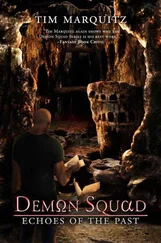Siri Mitchell - Chateau of Echoes
Здесь есть возможность читать онлайн «Siri Mitchell - Chateau of Echoes» весь текст электронной книги совершенно бесплатно (целиком полную версию без сокращений). В некоторых случаях можно слушать аудио, скачать через торрент в формате fb2 и присутствует краткое содержание. Жанр: Современная проза, на английском языке. Описание произведения, (предисловие) а так же отзывы посетителей доступны на портале библиотеки ЛибКат.
- Название:Chateau of Echoes
- Автор:
- Жанр:
- Год:неизвестен
- ISBN:нет данных
- Рейтинг книги:3 / 5. Голосов: 1
-
Избранное:Добавить в избранное
- Отзывы:
-
Ваша оценка:
- 60
- 1
- 2
- 3
- 4
- 5
Chateau of Echoes: краткое содержание, описание и аннотация
Предлагаем к чтению аннотацию, описание, краткое содержание или предисловие (зависит от того, что написал сам автор книги «Chateau of Echoes»). Если вы не нашли необходимую информацию о книге — напишите в комментариях, мы постараемся отыскать её.
Chateau of Echoes — читать онлайн бесплатно полную книгу (весь текст) целиком
Ниже представлен текст книги, разбитый по страницам. Система сохранения места последней прочитанной страницы, позволяет с удобством читать онлайн бесплатно книгу «Chateau of Echoes», без необходимости каждый раз заново искать на чём Вы остановились. Поставьте закладку, и сможете в любой момент перейти на страницу, на которой закончили чтение.
Интервал:
Закладка:
He looked as if he was going to turn me down, but then he surprised me by accepting. After installing him on the settee in the reception hall, I went downstairs to fix a tray.
Cranwell and Lucy were there, just back from a stroll. He had already peeled off his barn jacket.
“Anything I can do to help you?”
“No. Thanks. I have a meeting with my contractor.”
“For what?”
It was on the tip of my tongue to say, “Contracting,” but then I thought better of it. “I’d like him to begin work on the stable.”
By that time, I’d started the espresso-maker, so I began putting together a tray of sugar and spoons. When I turned my attention back to the espresso, Cranwell and Lucy had gone.
Upon entering the reception hall, I found M. Mailly investigating one of the fireplaces, mumbling.
“ Quelque chose qui ne va pas ?”
“ Non. Du tout. C’est superbe ce travail .”
Thank goodness! I was afraid that he’d discovered some flaw in the mantel. A mantel I’d paid 7,000 euros to have restored.
We stood at the dressoir , sipping espresso and looking at M. Mailly’s previous recommendations for the stable. I was especially interested in how it might be turned into a private suite. Cranwell’s stay had made me realize the value in having quarters that would accommodate a long-term visitor more privately. The contractor had also brought plans for a garden. Though I wasn’t interested in landscaping yet, it cost nothing for me to listen to his enthusiastic sales pitch. At the end of his spiel, I shrugged and suggested we take a look at the stable.
When we approached, I was surprised to find Cranwell and Lucy waiting for us.
“I thought you just took a walk.”
“We did.” Cranwell refused to elaborate on the subject and didn’t appear as if he were leaving anytime soon, so I introduced him to M. Mailly. Never having had the need to speak with the contractor in English, I was surprised at his fluency when Cranwell engaged him in conversation. Apparently, Cranwell’s profession wouldn’t allow him to pass up the opportunity to consult an expert on historical buildings. I didn’t mind sharing my contacts, of course, but I did get impatient when, after half an hour, we were no nearer the topic of my plans for the stable.
“ Excusez-moi de vous deranger …” I interrupted the men as politely as I could, and then I took M. Mailly by the arm and steered him inside. My relationship with the contractor had been established in French, and despite Cranwell’s presence, it seemed somehow artificial to me to conduct our business in English.
M. Mailly wanted to reinspect the building. To think of a French stable as a barn would be incorrect. The two buildings have always served very different purposes. This stable was not original to the estate, but dated from the late 1600s. As such, it displayed the characteristics of the period; of stone construction, the one-story building had a rather large entry area, for storing conveyances, and one long, wide central hall, lined on both sides with stables. Each stable had a door on the wall that opened to the outside. The floor was pieced of stone cobbles which could be easily cleaned with a wash of water. It still smelled musty from generations of straw and excrement that had been ground between the stones.
Cranwell and Lucy accompanied M. Mailly and me on our investigation. Several times, I saw the contractor frown as he tapped on a wooden door or glanced up to see light filter through the roof. At last he finished his prowling and we stepped outside to talk.
“ Le problème est que c’est une écurie .” He glanced at Cranwell as he said this and stopped to repeat it in English. “The problem is that this is a stable. One has gaps in the stones. One has holes in the roofs. One has doors which do not fit correctly.”
“ Mais c’est peut-être … it is perhaps less difficult to convert because one must tear down for that we can build up. And this is easy to tear down.”
M. Mailly and I spent a good hour talking about the feasibility of my plans. And all that time, Cranwell refused to leave. I finally ignored him and tried to help M. Mailly do the same by keeping the conversation in French. It would have taken twice as long to translate every phrase into English. And besides, Cranwell had no stake in the matter.
It was decided that M. Mailly would contract an architect to draw plans for splitting the stable into a garage and a residence. He thought that the beamed ceilings could stay and that the stone pavers could be removed, the ground cleaned and leveled and the pavers replaced in a concrete foundation. He warned that the walls would need insulation and more windows would need to be added-at least in the residence area. I agreed with all of those suggestions. I did, however, want to keep as many of the doors as possible.
The contractor asked if he could check the attic in the chateau. I remembered that during renovations, he was concerned that there might be leakage in the roof if work was not properly done in the varied angles around the towers. Although we’d blocked access to the attic in my bathroom, we’d decided to install a door in Sévérine’s bathroom that would allow direct inlet to the area which had most concerned M. Mailly.
As we walked back to the chateau, I recalled that Sévérine was in Rennes, working at the University. I grabbed the master key and led M. Mailly up the central stairs to her bedroom. I had misgivings about going into her apartment without her knowledge, but I decided I could let her know later that evening. It wasn’t as if we were being deliberately nosy.
Walking into the apartment felt like walking into another world. I had decorated my chateau in period furnishings from different eras in French history. Sévérine had decorated her space much as I imagine it would have looked in Alix’s time. There were several oriental rugs hung on the walls, there was a fur on the floor in front of the fireplace. She’d hung blueberry-colored drapes around her bed to match the duvet. The only thing marring the illusion was her study area. It was barricaded by piles of books, most of which looked to be about the legend of King Arthur. Fixed to the walls were charts, maps, and drawings in a handful of different languages. Some were on gemstones, others seemed as if they detailed foreign alphabets. Another was a map of the Forêt de Paimpont, punctured with a scattering of map pins. I’d thought she was researching Alix. King Arthur, if he’d ever lived at all, had died centuries before. While I was extremely impressed with the depth of her research, I decided not to mention our foray into her room.
M. Mailly crawled around in the attic for a quarter of an hour before reporting that he was satisfied with the condition of the roof.
He left around 1:00 p.m. Just in time for Cranwell and I to have lunch. I made it easy on myself and served croque-monsieur sandwiches and a tossed salad with mustard vinaigrette.
After discussing the latest draft of Cranwell’s manuscript, he asked me about M. Mailly. “He seemed very competent.”
“He’s the best. At least in this part of France.”
“So what did he say?”
“He’s going to have an architect draw plans for making part of the stable a residence and leaving part of it as a garage.”
“Practical.”
“I think so. The next time someone like you comes, they can have the whole place to themselves.”
“Do I bother you that much?”
“No! It’s just that I was thinking you-or someone like you-could get more work done if you had your own space.”
Cranwell shrugged and picked up his croque-monsieur . “I’ve never seen you speak French before. You’re fluent.”
Читать дальшеИнтервал:
Закладка:
Похожие книги на «Chateau of Echoes»
Представляем Вашему вниманию похожие книги на «Chateau of Echoes» списком для выбора. Мы отобрали схожую по названию и смыслу литературу в надежде предоставить читателям больше вариантов отыскать новые, интересные, ещё непрочитанные произведения.
Обсуждение, отзывы о книге «Chateau of Echoes» и просто собственные мнения читателей. Оставьте ваши комментарии, напишите, что Вы думаете о произведении, его смысле или главных героях. Укажите что конкретно понравилось, а что нет, и почему Вы так считаете.












